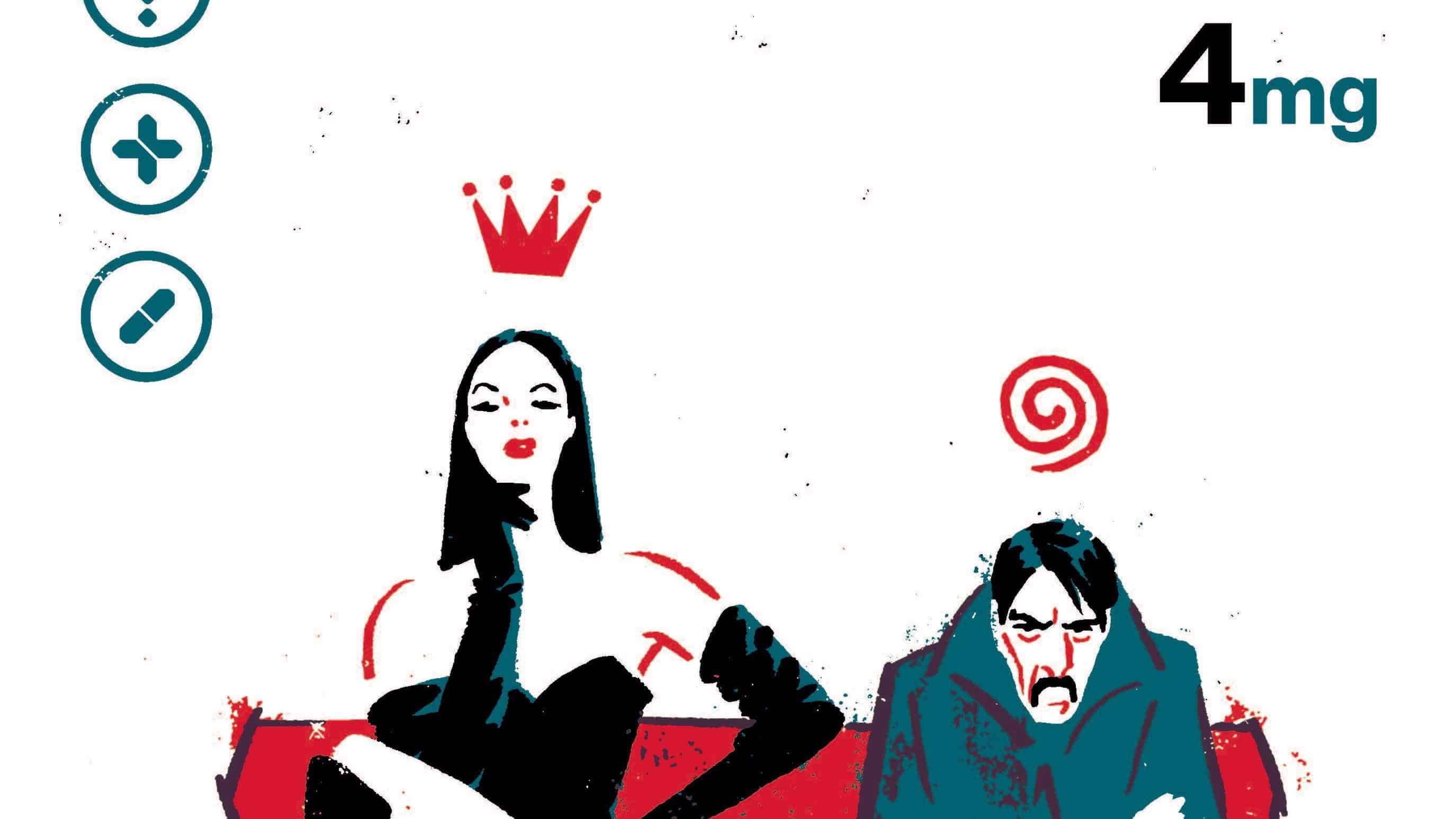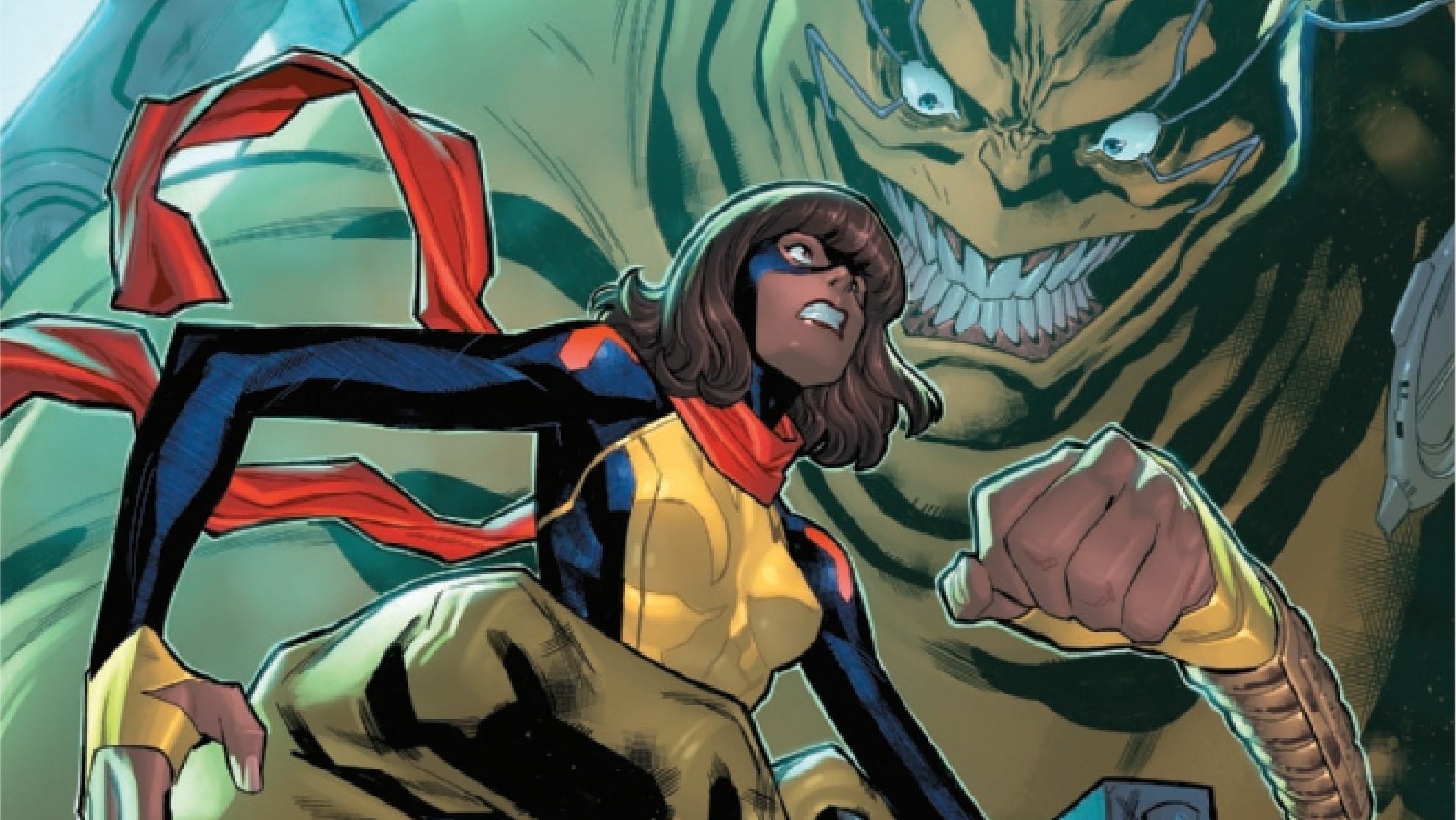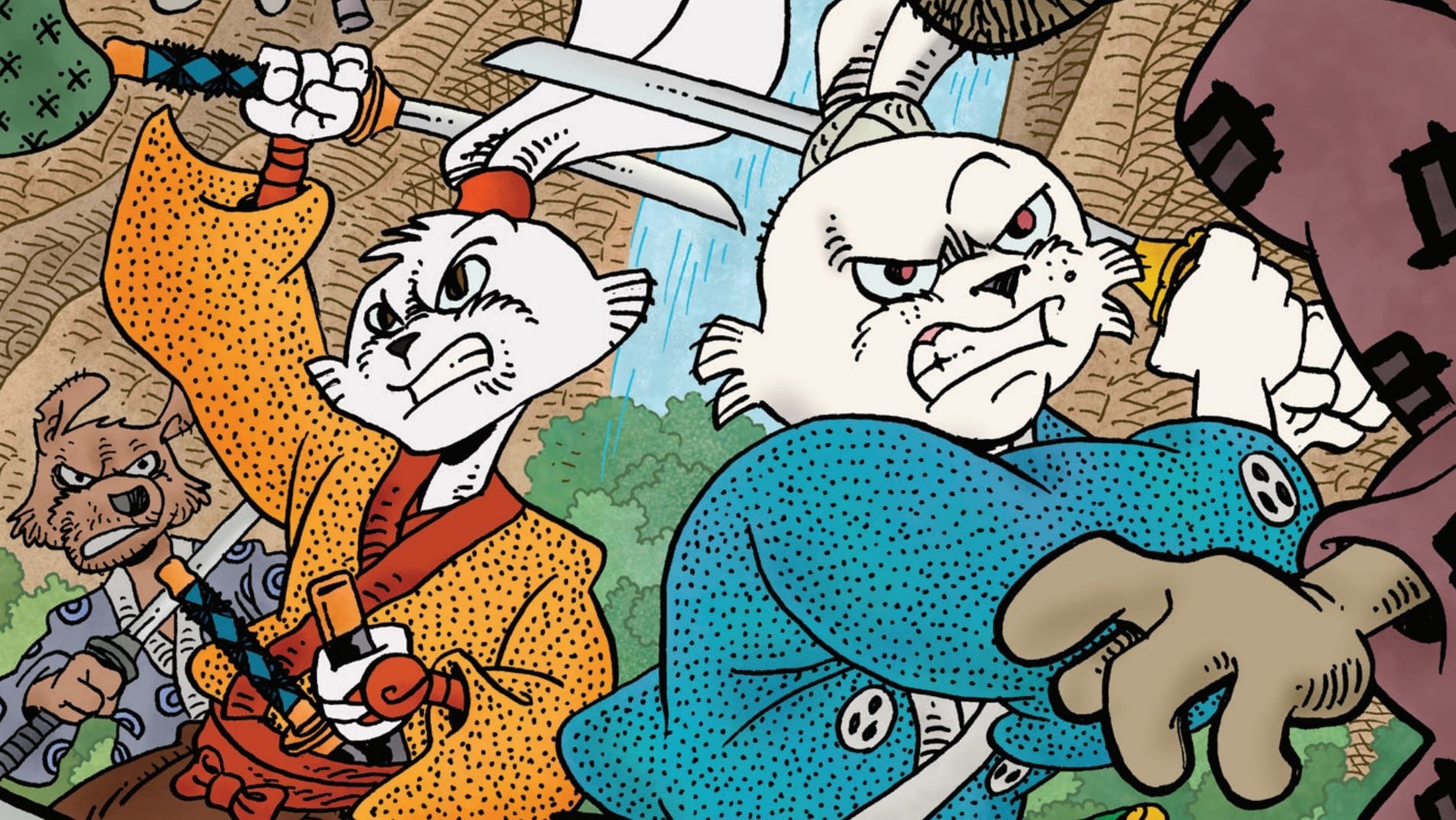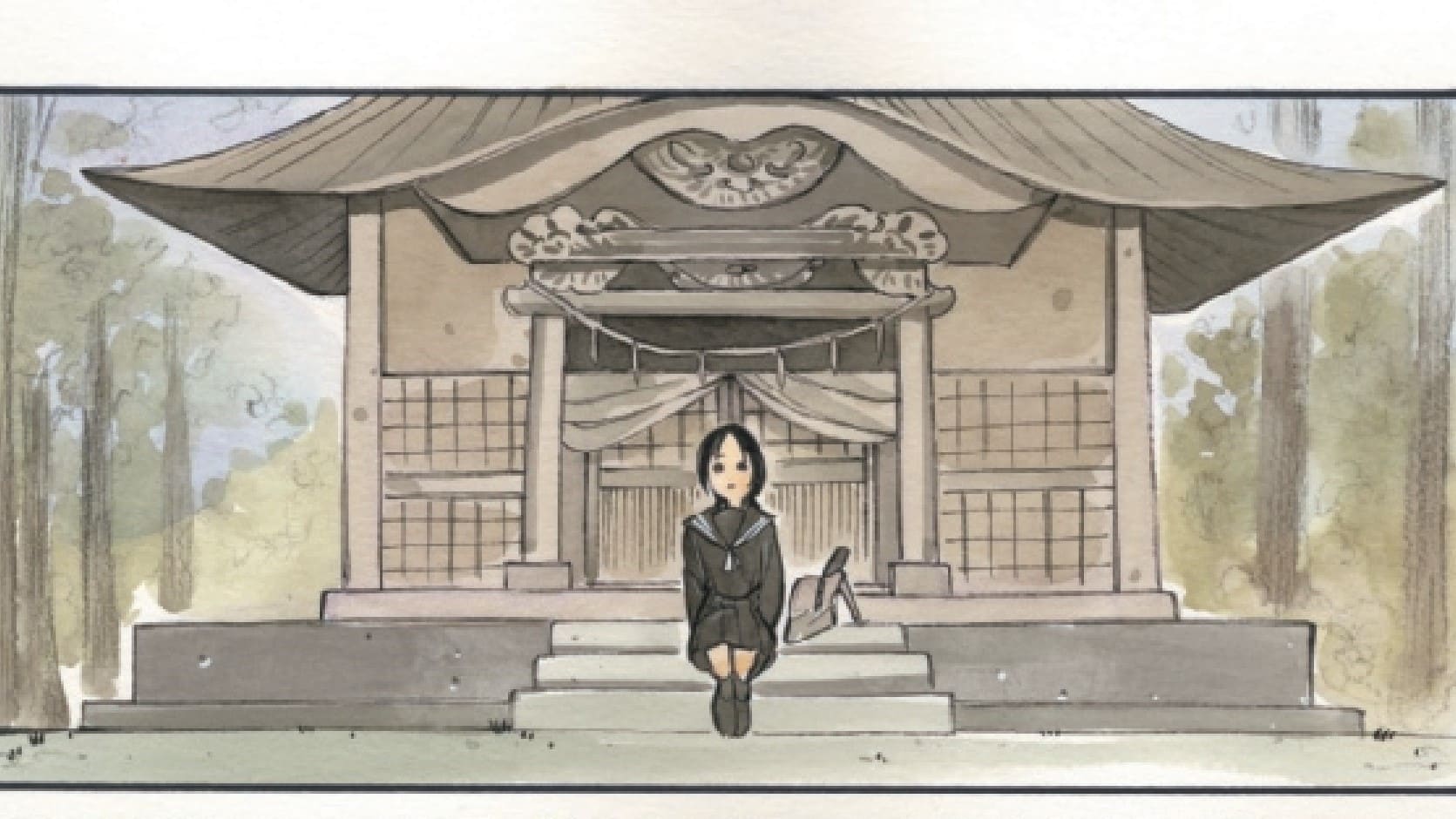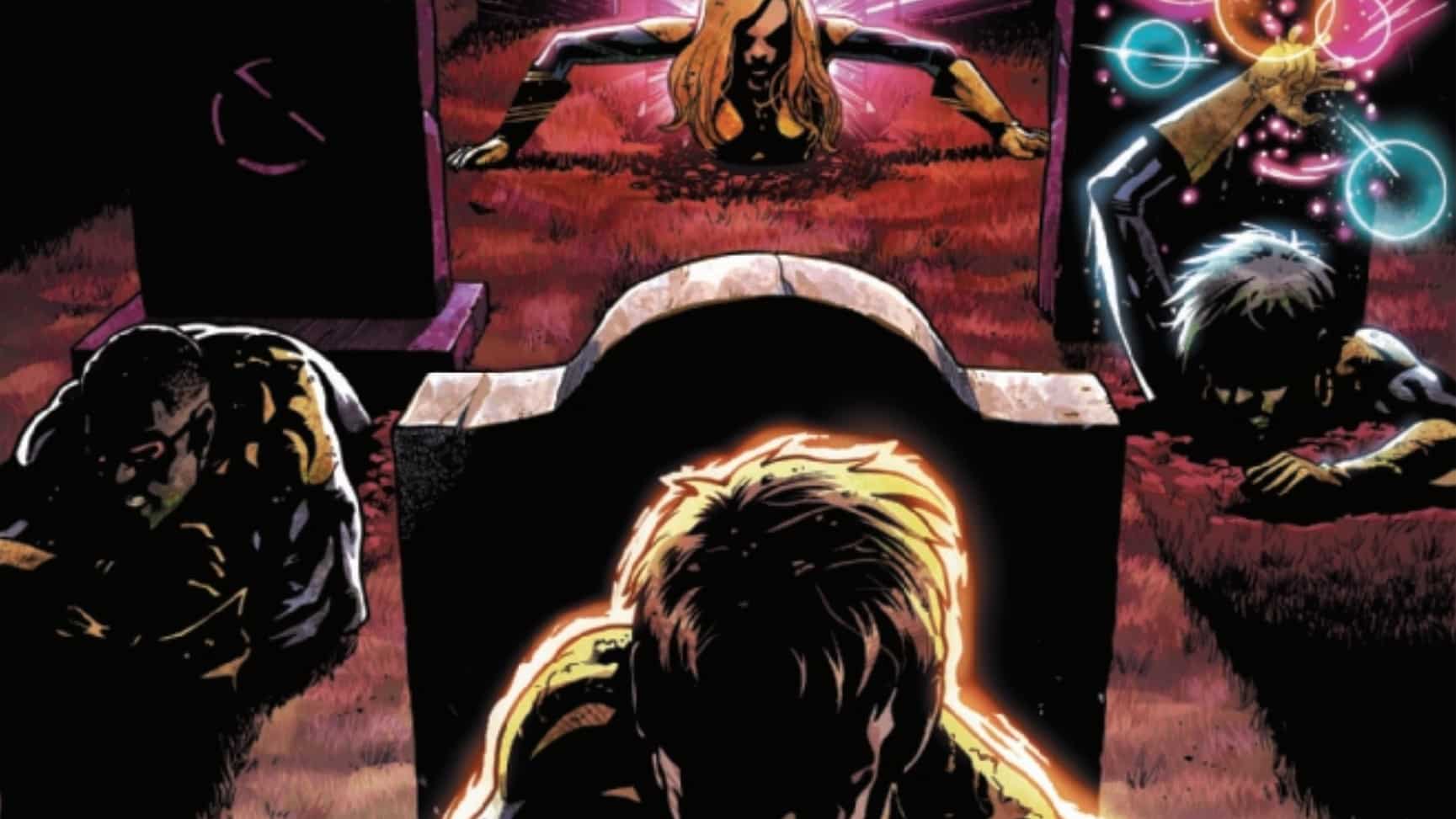It’s not a good look for your company when your first major launch fails to happen — but fortunately for X-Corp, image isn’t a problem when you’ve got a Master(mind) of illusions on your side. False projections only go so far, though, and it’s time for X-Corp to finalize who’s on the board once and for all — and then, take the fight back to Noblesse Pharmaceuticals the way only mutants can. X-Corp #4 written by Tini Howard, drawn by Alberto Foche, colored by Sunny Gho, and lettered by Clayton Cowles.
Armaan Babu: I think it’s safe to say, Corey, that while we enjoy writing with each other, there’s a certain amount of dread that comes whenever it’s time to cover X-Corp once again — it’s been a mess of a comic. Having read #4, I feel an all new kind of dread, because I actually found myself enjoying this issue a fair bit — but it falls apart like wet tissue paper when subjected to a closer look, and a closer look at this comic is unfortunately the very thing we’re here for.
Corey Smith: You’re absolutely right, Armaan. While the past two issues have been an undeniable step in the right direction after a launch that could best be described as “mediocre,” X-Corp is still nowhere near where it should be. I’m not sure how much of my first readthrough was genuine enjoyment, and how much was simply relief that it hadn’t gotten worse. What I do know is that upon my second read, I was considerably less impressed. Shall we get into why?
Projections Are Looking Up

Armaan: So the hook of this series seems clearly to have been the idea of duality — Angel and Monet both have their public sides and the more ruthless monsters they keep locked up. It was in that Reign of X tease, it was a theme that was pretty heavy on the first issue’s cover…but the marketing for this book is apparently just as much of a mislead as X-Corp’s first major launch is. Forget duality, what’s really making this book work is everyone embracing the most terrible sides of themselves, and that starts with Selene and Mastermind making a play for the X-Corp Board seats by showing just how invaluable they really are.
But first, a minor bit of confusion — I had to go back to #3 to make sure I hadn’t missed something. This issue makes it seem like the REAL reason X-Corp’s new bandwidth provider failed to launch is because of invasive Noblesse agents, and not Madrox’s failure to compensate for the deathly technical difficulties that arose last issue. Having double checked, the agents have in fact just appeared out of nowhere this issue, which really highlights just how messy X-Corp’s presentation of events is. It’s hard to follow what’s going on here, and honestly, I’m still not sure why any of it matters — but I’ll get back to this later.
What do you think of Selene and Mastermind as a duo, Corey, and how do they measure up in comparison to this book’s other big duo, Angel and Monet?
Corey: Honestly (and I never thought I’d have anything positive to say about Mastermind content, but between this and Hellions, I’ve been eating my words), they’re a fascinating mirror to our main duo. While Monet and Warren brood about how bad and dark and dangerous they are, Selene and Mastermind are far more comfortable about who they are, have a lot more fun with it, and, if I’m being honest, do it better. I’ve never been much of a fan of either character, due to events in their histories, but a character who does bad things is not always the same as a bad character, and for all its faults, this issue definitely did a good job of keeping me from merely writing the two of them off. If X of Swords and Excalibur have taught us anything, it’s that Howard can write the hell out of a villain protagonist [Ed. note: Not to mention her underrated Thanos and The Forgotten Queen], and that talent definitely shines through with these two.
It’s worth mentioning that while Selene and Mastermind shine together, each has done a fantastic job of manipulating their respective CXO — Warren for Mastermind, and Monet for Selene. While I’m not sure if Monet has had any direct conflict with Selene in the past [Ed. note: Not that I can recall, and I recall a lot], Warren should absolutely know better than to trust Wyngarde, who was directly, personally, responsible for one of the Buzzfeed Top Ten Most Traumatic Events In His Friend’s Life. It just goes to show how well Wyngarde managed to ingratiate himself to Warren since the Hellfire Gala, though it’s not as if X-Corp doesn’t give him any shortage of opportunities to prove himself. It’s not hard to seem like a hero if you follow an arsonist around with a fire extinguisher for long enough, and our resident Angel is absolutely flaming. …unless that’s just my fanfiction.
Armaan: You forget our time-displaced Warren Worthington III and his literal flaming wings courtesy of Black Vortex, but perhaps that’s for the best!
Corey: While Mastermind has been more subtle, Selene has been much more blatant about her scheming, outright telling Monet that she’s in her debt. In a lot of ways, their respective methods match up nicely with their targets — Warren is concerned about civility, appearance, and branding, while Monet’s entire arc so far has been about acting first, and damning the consequences. This difference in methodology has honestly made the Selene/Monet dynamic a more interesting topic for me. This issue is at its best when everyone is playing with their cards face up, rather than trying to hide, and that seems to be how Selene plays best.
Finally, I feel it’s important to note that while Warren and Monet have spent the entire series so far unable to see eye to eye, Selene and Mastermind instantly work together beautifully, furthering their respective goals without feeling the need to interfere with the other’s. It’s a good callback to their time in the Hellfire Club, and yet another reminder that for all of the skills our protagonists have cultivated, they’re still both novices in the art of political manoeuvring. What were your thoughts on our diabolical duo?
Armaan: I love your insights on these two. You’re right about Howard writing an excellent villain — and it’s an interesting time to be a villain in this new Krakoa era. All your sins forgiven (if not forgotten), you have every chance to play nice with the “white hats”, but at the same time, the good guys are so concerned with finding new ways forward that it’s easier than ever to wedge in a little bit of your trademark evil into things by calling it the mutant way.
I also want to note that this issue is a marked step up in the art. Firstly, that David Aja cover is just pure delight, giving us Selene and Mastermind at their most villainous, ready to be taken off the shelf in the desperate times that are calling for them. It’s gorgeous, it’s as stylish as all heck (as these covers have tended to be) and it’s got a playfulness that brings me nothing but glee.
Second, though, is the Alberto Foche art. It’s a subtle change, but one of the things that has bothered me the most about this series’ art is how much Foche’s choices seemed to be actively undercutting the moments Howard was trying to sell. In some ways, Foche is the perfect choice for a series about people so concerned with their image — a touch of glamor to everything in sight, but it often dipped into a cuddliness that jarred with the story, or action that was hard to follow.
Here, though, the art seems to have found a balance, and one thing I appreciate is how much style Selene and Mastermind bring to the page. They’re having fun waltzing in and saving the day while our heroes flounder. Sunny Gho also gets room to flex a bit with these two — a flaming dream sequence for Selene, and a marvellous Mastermind moment as he projects a fully functioning Ionospheric Bandwidth Generator, with all the flourish worthy of a circus ringmaster. Our villains have flair, and they have no qualms about taking the credit and the financial reward. At the end of the day, that’s what this business book has really been missing — unabashed bad guys. And, speaking of unethical business practices…
Battles in the Board Room

Armaan: I’m not entirely sure whether Selene’s a bad influence on Monet, or whether Monet has just been itching for an excuse to let her inner monster out, but we’re definitely crossing some lines here.
After having salvaged what was almost a ruinous launch, the X-Corp board gathers to discuss their options. Angel seems to believe that, despite apparently having signed on four of the world’s largest telecommunications companies immediately, X-Corp now has to buckle down and do something which…bothers me for a number of reasons. Firstly, providing four major telecom industries a brand new internet that’s miles ahead of anything human technology has ever accomplished? That’s huge. In a world that hates and fears them, the mutants are now providing a huge chunk of the internet, and someone on their team can literally talk to broadcasted signals. I may not be the most business savvy…or the most scientifically minded, when it comes to that, but I do care about good worldbuilding, and it seems like the ramifications for that would be huge. [Ed. note: Look at how many weird nerds love Google for Fiber] If only there was a business centered book that focused on how mutant leaps in technology affected human mutant relations. If only.
It’s a real missed opportunity to explore the kinds of things that was one of the things that made me excited for the book when it was first announced. It’s a reminder that, four issues in, I still couldn’t tell you what the point of X-Corp is. What are they really working towards, because Krakoa really doesn’t seem hard up for cash. What does it mean if they lose? What are this books stakes and goals besides Angel and Monet’s ego for the Krakoan pet project they’ve been put in charge of?
The other thing, of course, that this book promised was ruthless business dealings, but the ruthlessness shown here may be a bit more than I’m entirely comfortable with.
In order to fight back against Noblesse Pharmaceuticals, which has been making moves both legal and otherwise to undermine and collapse X-Corp in its infancy, Monet has the inspired idea to use Krakoa’s seemingly unlimited funds to simply buy the company out. It’s a good idea, but the way Monet goes about it feels all wrong. Invasive psychic extractions to find out what Noblesse board members’ schedules are is not a good start, but it seems to be bending unwritten rules rather than outright breaking them. The minor blackmail that follows, well, that’s business (I’m told). However, we then escalate to images of Monet straight up physically coercing board members into signing very expensive contracts, and I’m pretty sure this crosses a line into straight up villainy. It’s frustratingly played for laughs — oh, look at the impatient Monet, cutting through the red tape and using her mutant powers to get things done. That sort of thing works in a superhero setting, but in a business one? That sort of acquisition can’t be legal, and if the laws don’t mean anything, then what’s the point of having a business at all? This feels to me like it’s just a few steps away from simply taking over by force — Monet’s not breaking bank here, she’s holding it up at gunpoint. Is it just me, or is this unravelling everything this book should be about?
Corey: You mean a scathing critique on how engaging with capitalism inherently poisons one’s soul?
No?
Damn.
There were jokes every once in a while, back in the school days, about the idea of Emma Frost teaching Ethics. While the ramifications of that are rarely shown outside of the Cuckoos, it’s important to keep in mind that before they showed up, Monet (and her siblings, but let’s not get into that) was absolutely Emma’s star pupil in Generation X. If Cyclops is the culmination of the flaws in Xavier’s teaching style, Monet is absolutely the same for Emma. I can’t help but be unsurprised about her willingness to use telepathy in morally questionable ways — even more than that simply being the norm for Mutant telepaths over the years, she’s learned from the absolute best!
No, my surprise, all things considered, is with the lack of grace in her approach. Pulling schedules from minds is about what I’d expect, as is forging ahead with the plan before running it past Warren, but immediately resorting to blackmail and threats when she doesn’t get her way? Please, Ms. St. Croix, you were raised better than to be so gauche.
I’m not the only one disappointed by her lack of subtlety, of course, as this issue sees Monet and her winged counterpart finally have an open, heartfelt, and productive discussion about their respective styles of leadership. Armaan, what lessons did you take away from their ever—professional meeting of the minds, and how many times can you work the word “synergy” into your response?
Armaan: So the fight between Angel and Monet was what really made this issue for me. I know the line “for humans, it might seem insane, but this is how we were raised” is a line that broke your immersion, but it is, in fact, the line that dragged me right in, which I suppose isn’t very synergetic of us.
Where the synergy does work (reader, don’t roll your eyes at me, I was challenged) is in pointing out just how much violence is a part of how most mutants were raised, and making that explicit both verbally and physically. Angel and Monet may have had somewhat different upbringings, but both came from rather repressed lives of privilege only to be dumped in danger rooms under the tutelage of ethically compromised psychics as soon as their mutantness emerged. They were not guided in all the ways their mutant potential could be unlocked — they were taught how to use their gifts to fight. Violence is the most expression they were ever given. That’s true of most superhero comics, but as Warren points out — this is just how they were raised. Heck, it’s what prompted the infamous Schism — mutant children have always known violence, and it’s a language they speak better than nearly anyone aside from Cassandra Cain.
What’s interesting is that their duality is finally grappled with (quite literally) as Monet makes an important point: their darker sides aren’t just Hulks. They’re not just modes triggered by rage, they’re a part of who our two CXOs are. Monet’s embraced that. Warren is still trying to haggle over the cost — but he’s definitely bought in. Monet and Warren aren’t the same, but they might be the two people who can best understand what the other is going through. They just don’t know how to talk about it without violence.
And that brings us to someone else who’d rather let blood do the talking…
They Wrote This Pun For Us

Armaan: Look, I enjoy a good pun as much as the next person. Wait, no, that’s a lie, the next person is you and I can’t hold a candle to some of the ones you come up with. But the point of a pun is that they’re a bad joke, and our villain, Kol, seems to be taking one quite literally.
It’s strange, but not unprecedented, for a comic series to hold its villain in reserve for a while. It’s understandable; build up their mystique, imply their devious works from the shadows to make them seem like a more impressive threat. X-Corp has not been doing that good a job of it, but I can get what they’re going for. But here, we finally meet Kol and he’s…just some guy.
Just some guy who appears entirely convinced that if he publicly shoots up all of the employees of X-Corp in a…sigh, hostile takeover, well then, the business is his, and he’s free to dissolve it in any way he sees fit. Once again, this is the kind of thing that works in a superhero setting, but makes no sense in a business setting that ought to be bound by some kind of legality.
Kol, whose business has just been stolen right out from under him, is less of a master manipulator stepping out of the shadows, and more of a very petulant bigot who falls back on his plan of “use a lot of guns” when sabotage fails to work. He is a bafflingly underwhelming threat, and once again, I’m left asking…what is the point of this book, Corey?
Corey:You’re absolutely right, though, and the fact that we’re still asking that basic question four issues in is baffling to me. Even the largely reviled Fallen Angels had a clear purpose, in fleshing out Kwannon’s character. X-Corp hasn’t brought anything new to the table for Warren or Monet, and its examination of what was already there is surface level at best. While it’s far from the first book in the era that I’ve felt is largely drifting, every other case was due to the books stalling before events. X-Corp, on the other hand, started out by stalling, and hasn’t made any attempt to plot a course. Is the book about overcoming failure, or the dangers of hubris? Hardly, X-Corp has yet to publicly fail. But even those apparent successes lack punch, because they’re entirely unearned by our heroes. Is it a story about the pressure to live up to the grand expectations placed on the shoulders of two Mutants who absolutely can not handle stress? An argument could be made, but I feel that falls apart when you look at Monet, especially when you consider her actions in this issue.
Kol has been an underwhelming antagonist through the entire book so far, but this issue, with his full descent into “I’mma kill those muties” villainy, finally cemented why. He is, down to the glasses, a poor man’s Cameron Hodge! But while Hodge had buildup, a personal history with Warren, and more blatant queercoding than my second favorite Robin, Kol has… what, Fenris? I can’t decide if he’s genuinely operating under “you break it, you bought it” logic, or if he’s just leaning into being a corporate themed supervillain, but either way it’s put me in mind of some of the plots in early seasons of Yu-Gi-Oh!, and reminding your audience of a story with better writing is a dangerous game to play. When Kol is effortlessly dispatched, as I’m sure he will be, I’m hoping that the book realizes that it’s most dangerous enemy yet is my dwindling ability to give a damn, takes advantage of the fact that the board members are perfectly poised to turn the company into a holographic children’s card game powerhouse, and manages to find something resembling a direction. I don’t know about you, but as it stands I don’t think this has what it takes to be a satisfying miniseries at this point, let alone an ongoing book.
Armaan: You bring up a good point there, and remind me just how much this series pacing is all over the place. It’s rushed. Events are sped through with very little impact and even less time to breathe. We’re constantly told what the impact ought to be, with very little evidence of why that should be true, and the stakes (what little there are) never feel earned.
Case in point: the death of Madrox. The conflict here is that he desperately wants all of his research in one place — his head, but Kol’s attack apparently means he has no time to reabsorb all his dupes, even though we’ve seen him be able to absorb a lot of them fairly quickly. Also, do none of the dupes write things down? Amongst Madrox’s many dupe-related abilities, a perfect memory has never been one of them. Seems to me like Madrox’s biggest concern would be entirely eased if he just backed up his notes on a computer instead of a dupe every once in a while.
And then the prime is shot, meaning that it’s possible a lot more has been lost, and while I get what we’re supposed to feel, I have more questions than concern. Can Cerebro tell the difference between Madrox Prime and his dupes when making backups? What happens to the dupes when the Prime is killed, does one of them become the new Prime or do they all hang about until the Prime’s resurrected? And seriously, why doesn’t anything write things down?
I wish I could say I’m looking forward to these questions being answered in future issues. But, like Warren himself seems to be realizing, X-Corp doesn’t seem to have a good plan for what’s to come. I can’t believe I’m saying this (and I’m sure you’ll back me up here Corey), but all I’m really hoping for from this series now are some more great Mastermind and Selene moments before the whole thing comes crashing down.
Mutant Memos

- Krakoan reads: HOSTILE TAKEOVER, because of course it does.
- It is very interesting that Monet and Warren say they can’t be seen in public if they’re killed in front of humans, considering a) literally every other book in the line and b) the fact that they’re on their underwhelming, still-not-as-impressive-as-launching-Mars, floating island.
- It does tie in to what we’re seeing in X-Men, however — apparently the fact that mutants can all come back from the dead whenever they wish is still hush-hush as far as humans are concerned.
- Kicking Trinary off the board for being a former Robin Hood criminal, right before the data page confirming the board, when active criminals Selene and Mastermind are right there, does not sit right with either of us.
- On the other hand, if Trinary can be written out of this series, that works, because she is clearly not going to be done justice here.
- While Trinary remains unnamed, Neal Shaara’s getting the exact opposite treatment. Everyone else in the room gets to use their mutant codename but him.

